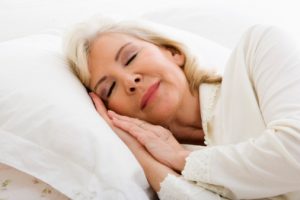 We’ve all had trouble falling asleep at one time or another, whether it’s due to excessive external noises disrupting your sleep or a feeling of restlessness. It is also a well-known fact that as we age, the quality of our sleep declines, which can lead to memory loss later in life. Thankfully, new research has potentially solved this chronic sleep problem in the elderly community with the use of “pink noise.”
We’ve all had trouble falling asleep at one time or another, whether it’s due to excessive external noises disrupting your sleep or a feeling of restlessness. It is also a well-known fact that as we age, the quality of our sleep declines, which can lead to memory loss later in life. Thankfully, new research has potentially solved this chronic sleep problem in the elderly community with the use of “pink noise.”
It may seem counter-intuitive to use noise to promote sleep, but it’s the type of noise that matters. Pink noise is defined as a gentle, soothing sound whereby each octave possesses equal energy. Essentially, pink noises are ambient sounds or background noises that people hear in everyday environments. Researchers from Northwestern University in Illinois worked with this concept and found that syncing these sounds with the brain waves of older adults as they slept not only enhanced their quality of sleep but also improved their memory.
Advertisement
We’ve known for years that deep sleep—or slow wave sleep—is associated with memory consolidation and that as we get older, the quality of slow wave sleep decreases. But this new research on pink noise is new and exciting.
The study in question involved 13 older adults between the ages of 60 and 84 years who were subjected to one night of placebo stimulation and one night of acoustic “pink noise” stimulation synced with brain waves, which were one week apart. Before going to sleep, each participant was asked to complete a memory recall test, and they completed another when they awoke the following morning.
What the researchers found was that, following acoustic stimulation, participants scored three times higher on memory recall tests compared to the placebo. An improvement was seen in both groups, but a greater difference was appreciated after “pink noise” stimulation.
“This is an innovative, simple, and safe non-medication approach that may help improve brain health. This is a potential tool for enhancing memory in older populations and attenuating normal age-related memory decline,” said senior author Dr. Phyllis Zee, professor of neurology at the Feinberg School of Medicine at Northwestern University.
While a promising initial result, the research team feels a larger study of participants in this age group would be ideal before making any gross recommendations regarding acoustic stimulation, with long-term and at-home studies possibly providing more definitive results.
